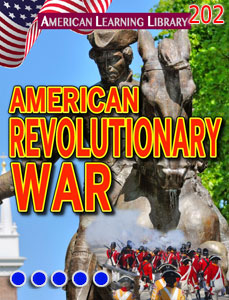By 1732 the last of the English colonies that would form the original 13 United States had been founded. It was Georgia, named for King George .
All of these colonies were like independent countries, or states as we might call them. Their populations were also growing fast. People lived longer, and had more children who survived infancy than those in Europe. As a result, by the time of the American Revolution, these 13 colonies were home to over 2 million people, about a third as large as the entire population of the mother country. So it is unsurprising that they were increasingly discontented by having a third of the people, but no say about laws and taxes at all. And also, by the 1770s, although people were still leaving Europe for the Americas, most of the people in the 13 colonies had not been born in Europe, but had been born in the colonies. So their connection to Britain was less strong than it had been a century earlier.
The idea that developed in the 13 colonies was to have a more of a say in their own affairs, and in particular how much they were taxed and where those taxes went. The slogan was: "no taxation without representation". The King and British Parliament would have none of it. Eventually it came to war. On July 2, 1776 there was a vote for independence, and the newly formed Congress adopted the Declaration of Independence on July 4. This is why the fourth day of July is celebrated annually in the U.S.A. as Independence Day.
The American War of Independence was the first successful bid in the world for independence from a colonial power. (It soon led to others.) And it needn't have happened at all if the British Parliament had been more sensitive to the situation. Indpendence was also not in the minds of everyone in the colonies, and after independence about a third of the people living in the colonies, and who wanted to stay British, moved to Canada where the people wanted to stay firmly within the British crown. But, as the British found, and like so many other governments right up to modern times would also find, it is very difficult to fight a war against people driven by principles when your base is thousands of miles away.
The four year war ended after the Battle of Yorktown, Virginia, and a peace treaty was signed in 1783.
The 13 colonies, now called states, organised themselves as a federation of equals, keeping many powers to themselves, but allowing over-arching powers to be set by the federal government. The federal government was reorganized into three branches (Congress, President and Supreme Court) so that no one part of the government could grow to be overly powerful. In 1789, George Washington, who had led the Revolutionary Army to victory, was the first president elected under the new constitution. The Bill of Rights, forbidding federal restriction of personal freedoms and guaranteeing a range of legal protections, was adopted in 1791.
Independence Day fireworks are often accompanied by patriotic songs such as the national anthem "The Star-Spangled Banner", "God Bless America", "America the Beautiful", "My Country, 'Tis of Thee", "This Land Is Your Land", "Stars and Stripes Forever", "Yankee Doodle" in northeastern states and "Dixie" in southern states.
Here are some famous quotes about independence for all:
“They who can give up essential liberty to obtain a little temporary safety deserve neither liberty nor safety.” Benjamin Franklin, Memoirs of the life & writings of Benjamin Franklin.
“Those who deny freedom to others deserve it not for themselves.” Abraham Lincoln.
“If liberty means anything at all, it means the right to tell people what they do not want to hear.” George Orwell.
“My definition of a free society is a society where it is safe to be unpopular.” Adlai Stevenson, speech, Detroit, 1952.
“For to be free is not merely to cast off one’s chains, but to live in a way that respects and enhances the freedom of others.” Nelson Mandela.
“Liberty has never come from the government. Liberty has always come from the subjects of it. The history of liberty is a history of resistance.” Woodrow Wilson.
“Experience should teach us to be most on our guard to protect liberty when the Government’s purposes are beneficent. Men born to freedom are naturally alert to repel invasion of their liberty by evil-minded rulers. The greatest dangers to liberty lurk in the insidious encroachment by men of zeal, well meaning but without understanding.” Justice Louis Brandeis.
“I hope we once again have reminded people that man is not free unless government is limited. There’s a clear cause and effect here that is as neat and predictable as a law of physics: as government expands, liberty contracts.” Ronald Reagan.
“Certainly one of the chief guarantees of freedom under any government, no matter how popular and respected, is the right of citizens to keep and bear arms.” Hubert H. Humphrey.
“I think we’ve been through a period where too many people have been given to understand that if they have a problem, it’s the government’s job to cope with it... It’s our duty to look after ourselves and then, also to look after our neighbor. People have got the entitlements too much in mind, without the obligations. There’s no such thing as entitlement, unless someone has first met an obligation.” Margaret Thatcher.
"And so even though we face the difficulties of today and tomorrow, I still have a dream. It is a dream deeply rooted in the American dream.
I have a dream that one day this nation will rise up and live out the true meaning of its creed: "We hold these truths to be self-evident, that all men are created equal."
...
I have a dream today!" – Martin Luther King



